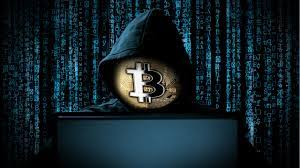An Irving man has been sentenced to federal prison for his role in a cryptocurrency money laundering conspiracy in the Eastern District of Texas, announced U.S. Attorney Brit Featherston, according to a DOJ press release.
Deependra Bhusal, 46, pleaded guilty on April 30, 2021, to conspiracy to commit money laundering and was sentenced to 46 months in federal prison today by U.S. District Judge Jeremy D. Kernodle.
According to information presented in court, Bhusal was involved in a multi-year money laundering conspiracy involving the laundering of criminal proceeds derived from various scams. Bhusal’s role in the money laundering conspiracy was to open bank accounts and mailboxes that were used to receive and transact victim funds, to receive the victim funds, to engage in subsequent financial transactions, routinely structured in amounts under $10,000 in an effort to evade reporting requirements and to conceal the nature and source of the criminal proceeds, and to move the criminal proceeds to foreign co-conspirators. Bhusal and his co-conspirators routinely exchanged the criminal proceeds for cryptocurrency and directed the cryptocurrency to wallets under the control of their foreign co-conspirators. In August 2020, Bhusal and his co-conspirators traveled to Longview, Texas, where they attempted to exchange approximately $450,000 in criminal proceeds for Bitcoin.
In the course of the operation, Bhusal was personally responsible for laundering $1,437,358.99 in criminal proceeds.
On March 10, 2022, co-conspirators Lois Boyd, 75, of Amelia Court House, Virginia, and Manik Mehtani, 33, of McLean, Virginia, were named in an indictment returned by a federal grand jury, charging them with a violation of the Travel Act, money laundering, and money laundering conspiracy.
If convicted, Boyd and Mehtani face up to 20 years in federal prison. A grand jury indictment is not evidence of guilt. A defendant is presumed innocent until proven guilty beyond a reasonable doubt in a court of law.


